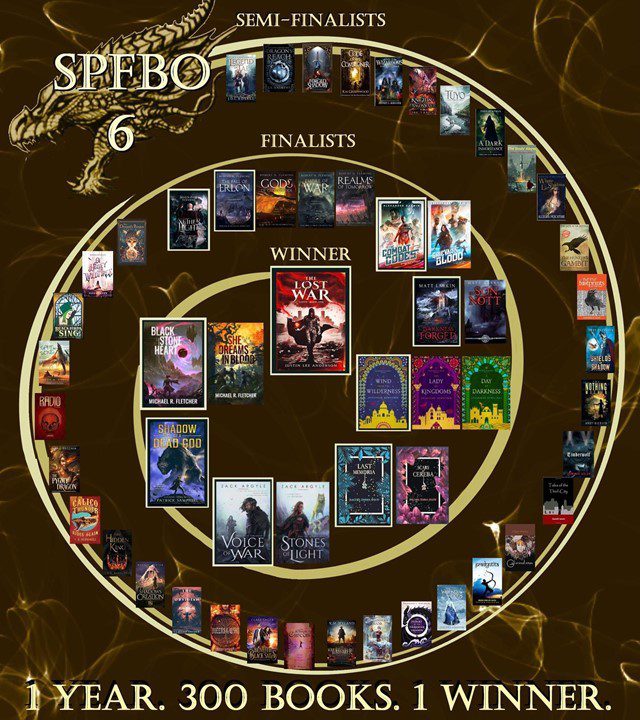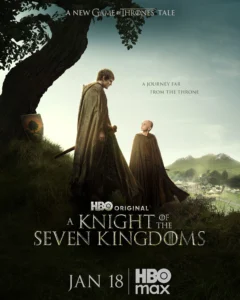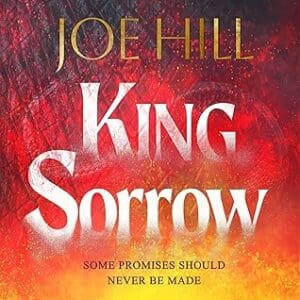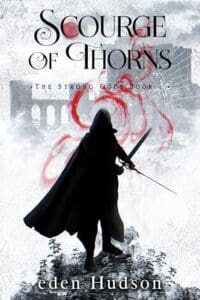
We at FanFiAddict want to thank Zack for his Guest Post. Make sure to check out Bookborn’s video (linked below) or Mark Lawrence’s website to find out more about what SPFBO is, how to enter your novel, or how you can be apart of this amazing competition!
The Rise of Self-Published Fantasy
At the conclusion of yet another incredible SPFBO competition (What is SPFBO?), I’m overwhelmed with the state of self-published fantasy. From previous winners to this year’s finalists—frankly, the semi-finalists as well—this competition is proof that the gap between traditionally-published and the upper bound of self-published fantasy is gone.
Like many out there, I used to look down on self-published fantasy. Honestly, there is good reason to. The barrier to entry is much lower, which in turn lowers the average quality—but that does not lower the upper bound. Which is exactly why SPFBO was born. In a way, SPFBO serves the same purpose as a traditional publisher: to find and promote the best books. Having read many of the competition’s former finalists and semi-finalists, I can confidently say that it has done its job.
To start, let’s talk about this year’s winner. Out of 300 entrees, The Lost War by Justin Lee Anderson came in first place. Like all traditionally published books, this book had an outside editor, who just happens to be John Jarrold. Yes, the guy who has worked with Terry Brooks, Guy Gavriel Kay, Orson Scott Card, Robert Jordan, and many more. The only difference between a traditionally published book and The Lost War is visibility.
What about the other finalists? In second place, we have Black Stone Heart by Michael R. Fletcher—a veteran author who was previously published by HARPER Voyager—and edited by the incredibly talented Sarah Chorn. In third place, Shadow of a Dead God by Patrick Samphire, who has been published previously by Square Fish (Shadow and Bone anyone?). Within the finalists, we have a theoretical physicist, a computer engineer, and a neuroscientist writing about memory magic. These are not people who cannot be traditionally published; they have chosen the path that is right for them.
Many of the world’s current favorite fantasy books are either self-published or were. Like last year’s SPFBO winner, The Sword of Kaigen. Or previous SPFBO entries Senlin Ascends and We Ride the Storm. Or the Cradle series by Will Wight, which was #1 in the entire Kindle store. Or previously self-published books like Blood Song by Anthony Ryan, The Rage of Dragons by Evan Winter, and The Wolf of Oren Yaro by K.S. Villoso. The point is that—even if you aren’t—traditional publishers are acknowledging that the upper bound of self-published fantasy has risen to rival traditionally published books in every way.
The truth is that the traditional publishing process does not work for many books. The query process is outdated, and the success of your book is largely dependent on factors outside of your control. I’m convinced that neither The Sword of Kaigen nor The Lost War would have been traditionally published as they currently are. The story structure for the former is weird, and the latter requires you to read 98% of the book to get the payoff. And yet, that doesn’t change the fact that they are both fantastic books.
It would be wonderful if we could rid the world of the stigma against self-published fantasy, especially the assumptions that go along with it, but, as long as the barrier to entry is low, the stigma will exist. What we can do is continue to support projects like SPFBO that highlight the upper bound. We can stop making the assumptions ourselves. And, most importantly, we can stop separating the two. At the end of the day, there are only “stories I liked” and “stories I didn’t like”; the means of production is meaningless.
To finish, I want to give a huge shoutout to both Mark Lawrence and the countless judges who have participated in the SPFBO competition over the last six years. Your work to shine a light on the upper bound of self-published fantasy has changed everything. So, from all of us—both readers and authors—thank you! The landscape is changing, and you’re playing a wonderfully valuable role in that shift.
If you made it all the way to the end here and still haven’t read The Lost War, WTF! Click the link and thank me later.
About the Author

Zack Argyle lives just outside of Seattle, WA, USA, with his wife and two children. He has a degree in Electrical Engineering and works full-time as a software engineer. He is the winner of the Indies Today Best Fantasy Award, and a finalist in Mark Lawrence’s Self-Published Fantasy Blog-Off.
SOCIAL LINKS:
BOOKS:




Fantastic post from a classy author. I would have expected no less.